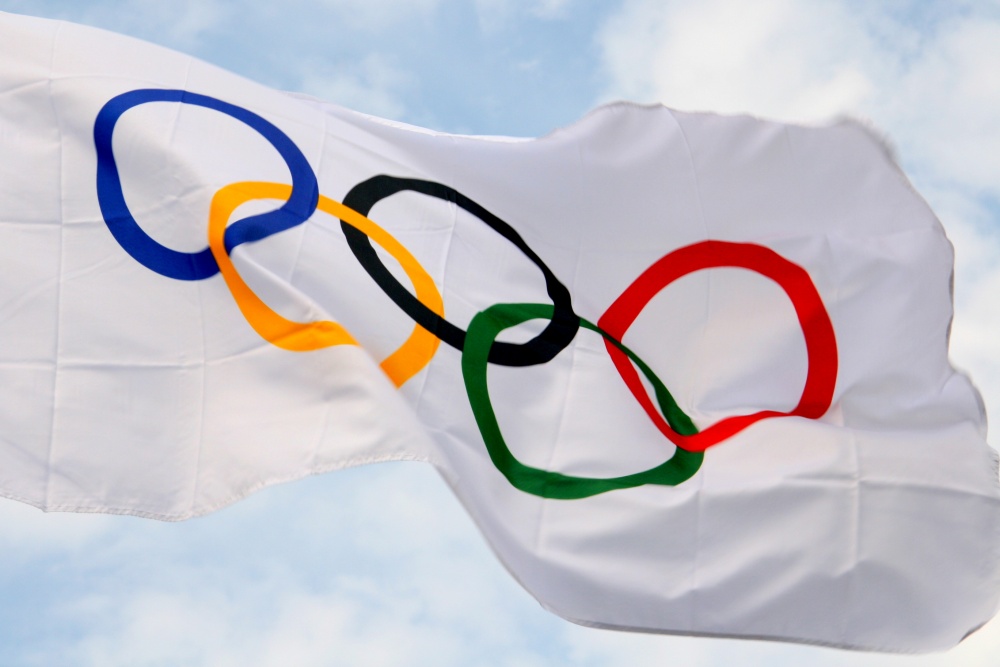Think Like An Olympian

Living North columnist Dr Maurice Duffy explains why
Success at the highest level doesn’t come from ‘luck’. It takes preparation. It takes hard work. But if hard work alone was enough, you’d be sipping your Champagne on the deck of your private yacht right now.
‘Behind those warm smiles and friendly waves, Olympians are fierce competitors who have spent years perfecting their craft and learning how to achieve high performance.’
So, how do they keep their minds so sharp, so focused? Can we do the same? I often say ‘you may never become an Olympic athlete, but you can learn how to think like one’. What are the key factors that make the difference? What turns your hard work into a gold medal, a private yacht, or whatever success means to you?
Successful people, Olympians, and people achieving at the highest level in their sector, all have a couple of key ingredients in common.
I have worked with five Olympic gold medal champions, as well as many successful business leaders and first-class sports teams. The first Olympian I worked with made history by achieving a score no one else ever did. That was Peter Vidmar’s perfect 10 in the pommel horse. When I am coaching sports people and business leaders, I always ask them this question: What is it that drives you in your life today?
Let me share with you what I have learnt while working with the best.
Before you start, you must program your mind to be successful. You must unlearn all the thoughts that were making you ineffective and replace them with new thoughts – successful thoughts. Yet so many of us are today running the same thinking pattern as years ago. Repeating the past does not create a new future, repeating the past simply creates more of the past.
I’ve had an obsession for 30 years, which is to ask, ‘what makes the difference in the quality of leaders’, athletes’ and teams’ performances?’ What I have found, and what I believe makes the difference, is the invisible force of your internal drive, which, once activated, is the most important thing in the world.
1. Family forms an unshakeable foundation. Having people around you who give you energy and whom you can trust is vital. So many Olympians talk about the support, energy, and help family members give them, and how they are an anchor in rough waters. Adam Peaty, the swimming sensation, talks all the time about the importance of family.
2. Bin the psychic vampires in your life. You don’t ever have to feel guilty about offloading toxic people from your life.
3. Keep chasing your dreams, even when you trip. Mo Farah personified this ideal when, at the Rio 2016 Games, he tripped and fell over in the Olympic final. It would have been so easy to give in or give up. Instead, Farah used the devastating setback as motivation. Not only did he get up and race again – he won gold.
4. Adversity is the best motivator. If there is one thing athletes have shown us, it is that unapologetically reaching for your dreams, no matter how unreachable they may seem, leads to success. Charlotte Worthington winning BMX gold with a history-making 360 backflip showed that you must keep believing in yourself and your dreams.
5. Visualise those goals. This might seem like a no-brainer, but if you want to accomplish big things, you need to allow yourself to dream big. I remember Roger Federer, to me one of greatest tennis players ever, telling us that visualisation is one of the most important parts of his preparation.
6. Mind-body connection. The impact our thoughts can have on our bodies should never be underestimated. Basically, what we think – we become.
7. Daily practice. At least once a day, picture a very specific goal. As those images fill your mind, repeat affirmations such as ‘I am strong’ or ‘I can do this’ and push aside any doubts. You’ve got this!
8. Become resilient. People who are resilient recover from adversity much quicker than others. In competitions (and in life), anything can happen: false starts, injuries, loud noises – but a world-class athlete knows how to recover with grace. You can too. Shake it off. My experience with Steve Smith the Australian cricketer is that you have to learn to overcome so much abuse after a set-back, but it can be done.
9. Mindfulness meditation. I’ve said it before and I’ll say it again: if you cannot afford 10 minutes a day for meditation, then you need to spare one hour to rewire your brains.
10. Focus on breathing. The next time you are feeling anxious or stressed, focus on your breathing. It is a quick way to get things under control. You don’t have to be an elite athlete to adopt that positive attitude. Every business leader, team and athlete I teach, practice breathing, meditation, and visualisation every day as part of their tool box for greatness.
From the very beginning in life, we are indirectly told to compare ourselves with others. This is the greatest disease, it is like a cancer that goes on destroying your very soul because each individual is unique and comparison is not possible. Remember, be yourself – everyone else is taken. Always remember that you are absolutely unique. And don’t judge each day by the returns that you get but by the investment you make. Every day, your personal clock resets. Don’t get worked up about what has happened. Focus and fight for what could be.
Dr Maurice Duffy is Visiting Professor at Sunderland, consulting coach to the NHS, the Australian cricket team, Durham Cricket Club, international golfers, rugby and many sports people, and also coaches many senior FTSE 100 business leaders and politicians around the world. Find out more at www.mauriceduffy.com or follow him on twitter @thebeaksquawks







